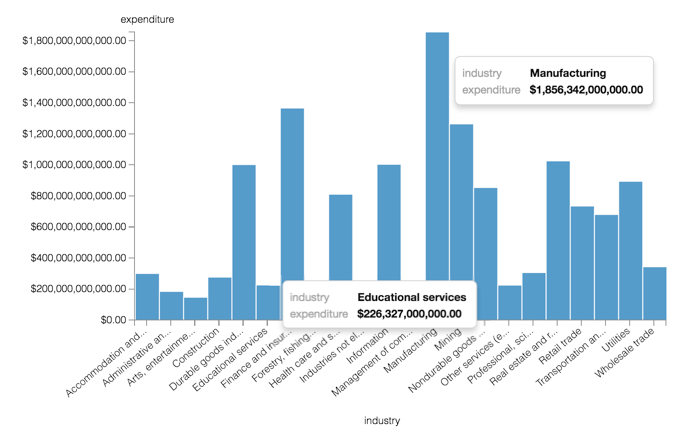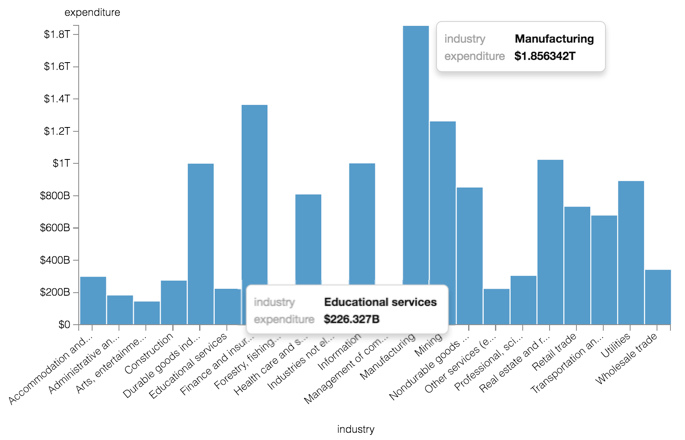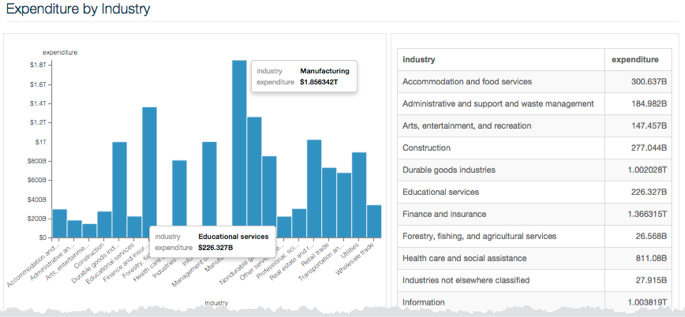Currency magnitudes use expressions such as thousands (103), millions (106), billions
(109), and trillions (1012). In contrast, scientific notation uses prefixes: k: kilo- (103), M:
Mega- (106), G: Giga- (109), and T: Tera- (1012). viz-display-format-custom.png has an option
that helps you to distinguish between scientific and currency unit abbreviations.
-
Create a new Bars visual on the Capital Expenditure by Industry dataset.
-
Add the
industry field on the X Axis shelf and
the expenditure field on the Y Axis shelf.
-
Click the
expenditure field to open the FIELD
PROPERTIES menu.
-
Under FIELD PROPERTIES, click Display
Format.
-
In the Display Format modal window, select Currency from
the Category menu and change the format to display the
$ (dollar) currency symbol.
-
Click SAVE.
-
Click REFRESH VISUAL.
You can see the display of numbers on the axis scale and in the tooltips.
Obviously, the standard currency form is inadequate for representing very large numbers
and quickly reviewing the difference in their magnitude.
-
Change the display format of the
expenditure field to a custom format
by setting the value of Customize Date/Time to $,S
(currency, ',' thousands separator, and 'S' for currencies).
-
Click SAVE.
-
Click REFRESH VISUAL.
The new display format categorizes the magnitude of the currency more clearly , with
Educational Services expenditure valued at approximately $226 Billion,
contrasting with Manufacturing at nearly $2 Trillion, for the years covered by
the data.
- Optional:
You can see how the data format appears across the data set by creating a dashboard
that contains both this bar chart and a table visual.
Some column values have the suffix B (billions), while larger columns have the suffix T
(trillions).





